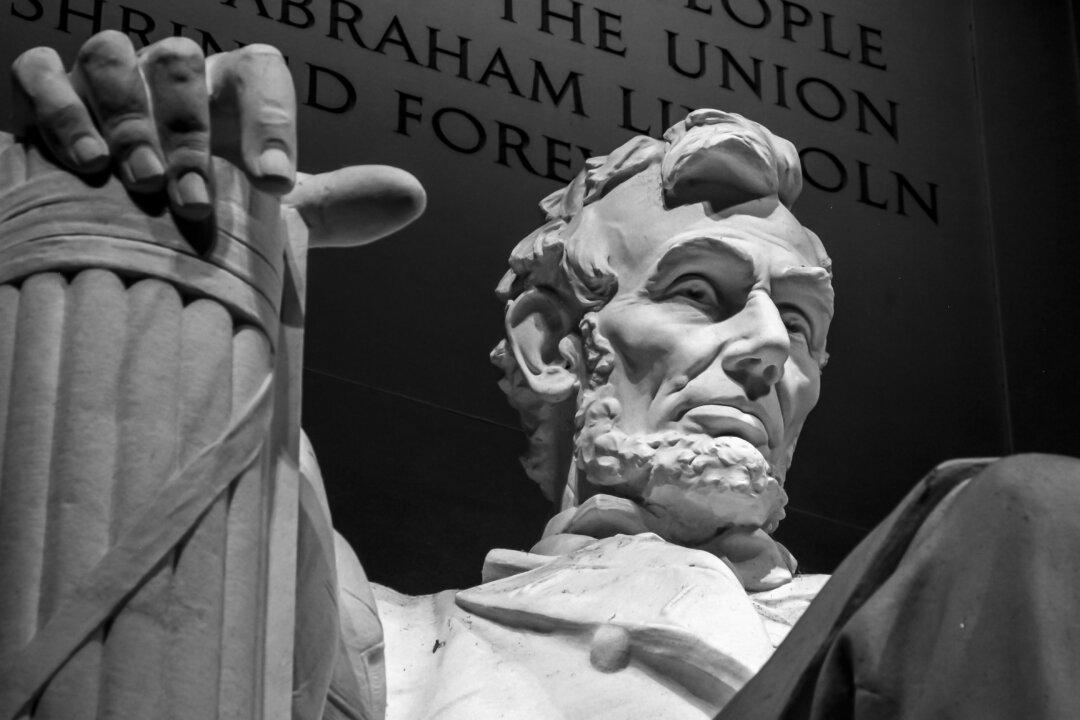Leadership vs. Tyranny
If a state, in one instance, and a county in another, should be equal in extent of territory, and equal in the number of people, wherein is that state any better than the county? Can a change of name change the right?
—Speech at Indianapolis, Illinois; February 11, 1861
If the minority will not acquiesce, that majority must, or the government must cease. There is no other alternative; for continuing the government, is acquiescence on one side or the other.
—Lincoln’s first Inaugural Address; March 4, 1861
What mysterious right to play tyrant is conferred on a district of country, with its people, by merely calling it a State?
—Speech at Indianapolis, Illinois; February 12, 1861
Under these circumstances I have been urgently solicited to establish, by military power, courts to administer summary justice in such cases. I have thus far declined to do it, not because I had any doubt that the end proposed—the collection of the debts—was just and right in itself, but because I have been unwilling to go beyond the pressure of necessity in the unusual exercise of power.
—Message to Congress; December 3, 1861
The assertion that “all men are created equal” was of no practical use in effecting our separation from Great Britain; and it was placed in the Declaration, not for that, but for future use. Its authors meant it to be as, thank God, it is now proving itself, a stumbling block to those who in after times might seek to turn a free people back into the hateful paths of despotism.
—Speech given in reaction to the Dred Scott decision; June 26, 1857
Boldly Pursue your Goals
You desire peace, and you blame me that we do not have it. But how can we attain it?
—Letter to James C. Conkling; August 26, 1863
As to the policy I “seem to be pursuing,” as you say, I have not meant to leave any one in doubt. I would save the Union.
—Letter to Horace Greeley; August 22, 1862
In stating a single condition of peace, I mean simply to say that the war will cease on the part of the government, whenever it shall have ceased on the part of those who began it.
—Message to Congress; December 6, 1864
I am a patient man—always willing to forgive on the Christian terms of repentance; and also to give ample time for repentance. Still I must save this government if possible. What I cannot do, of course I will not do; but it may as well be understood, once and for all, that I shall not surrender this game leaving any available card unplayed.
—Letter to Reverdy Johnson; July 26, 1862
By general law, life and limb must be protected, yet often a limb must be amputated to save a life; but a life is never wisely given to save a limb. I felt that measures, otherwise unconstitutional, might become lawful by becoming indispensable to the preservation of the Constitution through the preservation of the nation. Right or wrong, I assumed this ground; and now avow it. I could not feel that, to the best of my ability, I had even tried to preserve the Constitution, if, to save slavery or any minor matter, I should permit the wreck of government, country, and Constitution, all together.
—Letter to A. G. Hodges; April 4, 1864
What would you do in my position? Would you drop the war where it is, or would you prosecute it in the future with elder–stalk squirts charged with rose-water? Would you deal lighter blows rather than heavier ones? Would you give up the contest, leaving any available means untried? I am in no boastful mood. I shall not do more than I can, and I shall do all I can to save the government, which is my sworn duty as well as my personal inclination.
—Letter to Cutherbert Bullitt; July 28, 1862
Much is being said about peace; and no man desires peace more ardently than I. Still I am yet unprepared to give up the Union for a peace which, so achieved, could not be of much duration.
—Letter to Isaac Schermerhorn; September 12, 1864
I shall do less whenever I shall believe what I am doing hurts the cause, and I shall do more whenever I shall believe doing more will help the cause. I shall try to correct errors where shown to be errors, and I shall adopt new views as fast as they shall appear to be true views ... I have here stated my views of official duty, and I intend no modification of my oft-expressed personal wish that all men everywhere could be free.
—Letter to Horace Greely; August 22, 1862
Let us be diverted by none of those sophistical contrivances wherewith we are so industriously plied and belabored—contrivances such as groping for some middle ground between the right and the wrong, vain as the search for a man who should be neither a living man nor a dead man—such as a policy of “don’t care” on a question about which all true men do care.
—Address at Cooper Institute; February 27, 1860
(To be continued...)




